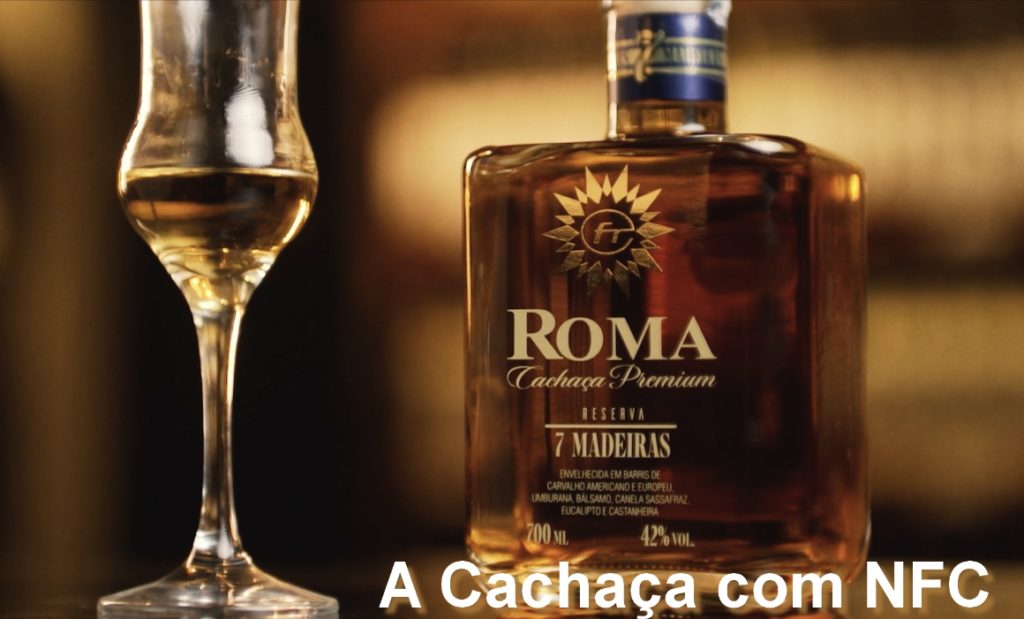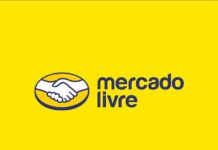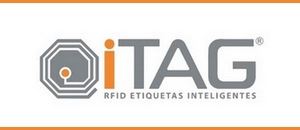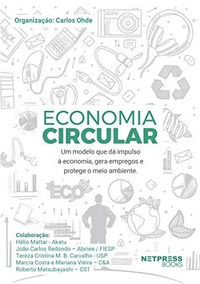Edson Perin
Fishing, country music and a good sugarcane distillate – the very Brazilian cachaça – are part of the same universe in the Center-West region of Brazil. Now, one more ingredient has just been included in this package: Near Field Communication (NFC) technology from Avery Dennison. Cachaça Roma is using NFC tags, deployed by CCLiD, to bring consumers closer to the brand and, also, guarantee the authenticity of the beverage, as the technology adds value in controlling the entire supply chain.
The engineer Rodrigo Pedroso, founder of Cachaça Roma and technology enthusiast, was responsible for the innovation. Cachaça was born on the Roma farm, in the city of São Félix do Araguaia, in the state of Mato Grosso (MT), and the property was named with the initials of the founder’s children: Rodrigo and Maria Eduarda. The farm, on the banks of the Manso River, one of the largest tributaries of the Araguaia River, located in a sport fishing region, which motivated the family to explore the tourist side of the region, in addition to agribusiness. Thus, a hotel business was born: The Hotel Rancho do Matuto – Fazenda Roma.

With the hotel, Pedroso and his team considered it important to create a differential for the property and, in this way, decided to launch Cachaça Roma, a premium drink [cachaça is a distilled beverage from the sugar cane juice that originally appeared in Colonial Brazil and that has no similar in the world]. With this, Cachaça Roma became a symbol of the farm hotel’s identity. “Fishing is very involved with a moment of relaxation and happiness, with cachaça and country music too, which is very strong in the region. That’s why we say that Cachaça Roma is based on real fishing and good country music”, explains Pedroso.
Through NFC, Pedroso explains that the original idea was to bring traceability, eliminating the risk of counterfeiting the drink and offering total security to the product’s consumer. “Technology also helps to better understand our customers’ consumption habits. Of course, we have everything within the General Data Protection Law (LGPD), we are extremely careful with this”, says Pedroso. “Our intention with NFC is to better understand where our customers are, their consumption habits, so that we can deliver a better product quality.”
Pedroso emphasizes that Cachaça Roma has excelled in quality since the beginning, with the best distilleries, the best packaging, the best label and the best content. “Our goal includes offering a premium product, ensuring its authenticity and evolving over time, always with the aim of improving the product for our customer, day after day.”
Sandra Alvarez, Avery Dennison’s New Business Development Manager for Mexico, Colombia and Central America, says that as we are currently in a much more automated market, NFC helps bring better responses faster to improve the customer experience. consumer. “A study by Gartner, a global technology research and consulting firm, says that 90 percent of companies will compete for a great customer experience going forward,” says Sandra. “For this reason, companies need to be very attentive to their quality and have products in very good condition, because the focus of competition is increasingly focused on the customer experience. Thus, there will be a good association between the customer and the brand”.

Sandra attests that the assembly of this consumer experience through NFC is not very complex, using solutions from Avery Dennison. According to Sandra, through NFC, customers can classify products and locate them geographically, in addition to scheduling specific actions. “In a city, for example, the product can offer specific benefits for that consumer, such as promotions. And, also, give complete information about the origin of the product and its sustainability”.
Alexander Modro, manager of new business development and smart labels at Avery Dennison, explained that NFC meets the demand of product manufacturers, who want to be closer to their customers in order to retain them; and also the demand of consumers, who want detailed information about the products, a guarantee of authenticity and a more pleasant and personalized experience, feeling exclusive.
“Basically, two things come together: the NFC tag, which will be placed on the product, and the access that the consumer will have from this connection to the brand, both being taken to the manufacturer’s website, receiving a discount option, getting to know the brand better…”, details Modro. “So, NFC is something that is happening more and more, as several brands are putting it, including to obtain the geolocation of the product, consumer habits and – with blockchain – it becomes possible to show how the product reached the consumer’s hands, with total transparency, which is increasingly essential for buyers”.
According to Modro, there are companies that use NFC technology to guarantee the authenticity of products and prevent counterfeiting, even piracy, and others that add value to products by providing differentiated services. “A mountaineering company called Mammut created an application that facilitates access to the booking of trips recommended by the company, via NFC, with specific promotions for its consumers.”
The Avery Dennison executive concludes his reasoning saying that “if the consumer is satisfied with the brand, he will be easily loyal and will return to buy”.
Watch the full video interviews: click here [Portuguese and Spanish].



















